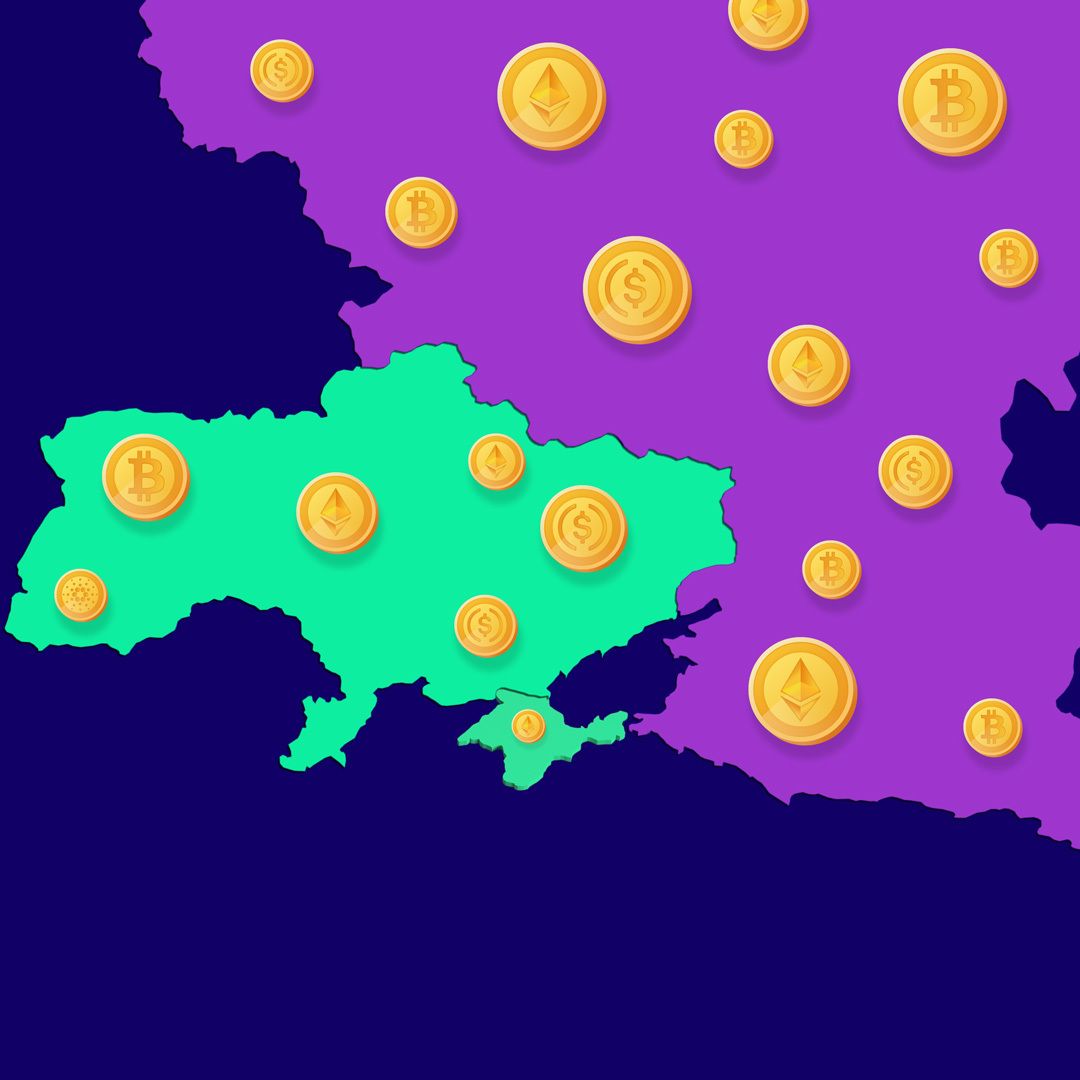The decentralized nature of crypto provides an efficient and promising alternative in these dire times, particularly for refugees fleeing to other lands. While trading has spiked on most top crypto exchanges, this has been clearly witnessed in the trading volumes on Ukraine’s biggest crypto platform, Kuna. After the invasion in late February, trading volumes of around $1 million spiked to $4.8 million, highs previously only seen in May 2021.
For better or for worse, cryptocurrencies have firmly established themselves in the international conflict. For the most part, it’s allowing millions of dollars to reach Ukraine in efforts to resist Russia’s invasion, however, on the flip side cryptocurrencies could also be allowing Russians to bypass imposed sanctions. Let’s explore how cryptocurrencies have become integral to helping Ukrainians face a most surreal reality, and the impact this has had on the crypto markets.
Cryptocurrencies: One Of Ukraine’s Few Humanitarian Tools
Since Russia invaded the country, hundreds of lives have been lost and even more utterly shattered as over two and a half million Ukrainians have fled the country. Seeking refugee status in bordering countries like Moldova, Romania, Hungary, Slovakia, and Poland, this has become the fastest-growing refugee crisis in Europe since World War II.
Others have not been able to flee as ongoing conflict has blocked off key exit routes, causing families to be trapped in apartment buildings and towns indefinitely.
Mere days after Russia first attacked its neighbouring country, the Ukrainian government launched a mass appeal on Twitter for crypto donations to support their war efforts. While the country has received little in the form of military assistance, the greater world is doing what it can to help. Cryptocurrency donations appear to be the best avenue of support.
After releasing wallet addresses for both Bitcoin and Ethereum, Elliptic has reported that the government has received in excess of $60 million in funding. This unprecedented magnitude of crypto crowdfunding has offered a glimmer of hope to the people alongside funds to assist them in defending their land.
It has also been reported that many Ukrainian citizens have turned to use cryptocurrencies as the country’s financial institutions face widespread uncertainty. The Ukrainian Central Bank has limited ATM withdrawals and access to foreign currencies, and barred all electronic cash transfers, leaving few alternative options.
Concerns Over Russians Using Crypto To Dodge Sanctions
In light of the lack of military assistance, countries from around the world have instead imposed sanctions on the Russian nation, forcing the country into further diplomatic and economic isolation. From banning SWIFT payments to Visa and Mastercard suspending operations, the country is facing increasing financial pressure.
On top of this, major corporations including Shell, McDonald’s, Pepsico, Coca-Cola, and Starbucks have committed to temporarily pausing all operations in Russia. Apple, Youtube, Google, and Meta have also taken stances, targeting Russian state-controlled media.
As Putin continues to wage war with no regard for civilian casualties, many believe that Russians are turning to cryptocurrencies. It was reported last week that the US is considering implementing sanctions on Russia’s crypto market while this week, Coinbase blocked 25,000 crypto wallets linked to Russian individuals and organizations. The platform did add that they are not blocking all Russian-affiliated wallets as cryptocurrencies should be accessible to anyone in need of a lifeline.
It is believed that Russia is working on a digital ruble but little is known about the advances of this project. It’s also worth noting that Russia is the world’s third biggest Bitcoin miner after the US and Kazakhstan, with its share remaining unaffected following the invasion.
What This All Means For The Crypto Markets
While Bitcoin and other cryptocurrencies have been used as an aid to both the good and bad, the markets tell another story entirely. Right after Russia's invasion of Ukraine, the Bitcoin market saw an immediate decline, losing 10.5% of its value in just 18 hours. The markets have undergone swift price swings since, increasing by 28% in the following six days, only to fall another 16% in the four days that followed.
On Wednesday, 9 March the markets saw another turn, with the Bitcoin price increasing by almost 10% as US President Joe Biden signed an executive order urging the Federal Reserve to explore the implementation of cryptocurrencies in the greater financial landscape. Since this increase, it has lost roughly 7% of its value, trading just under $40,000 at the beginning of the week.
Where To From Here?
While Bitcoin and other cryptocurrencies have proven to be a preferred aid in the war against Russia, the situation remains devastating and incomprehensible for most. Many are left wondering whether its use in war could spur an elevated rise in crypto adoption.
As cryptocurrencies continue to provide a welcome avenue of global support, we can only hope that it too helps the people of Ukraine gain some kind of financial control and a fighting chance of defending themselves.
Here at Oobit we firmly stand behind Ukraine. Should you be able to or wish to make a donation to the Ukrainian government you can do so directly here.
________________________________________________________
Oobit Technologies Pte, 50 Raffles Place #37-00 Singapore Land Tower, Singapore (048623). is a company registered in Singapore (no:201716443G), that has been approved as Appointed Representative of Oobit Technologies OÜ, Harju maakond, Tallinn, Lasnamäe linnaosa, Väike-Paala tn 2, 11415, (no: 14852617 ). Which is authorized and regulated by the FIU (no: FVR001421 and FRK001304).
